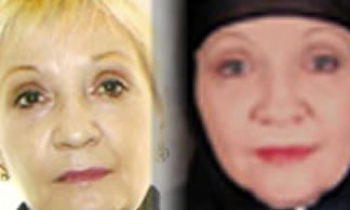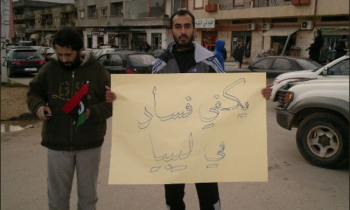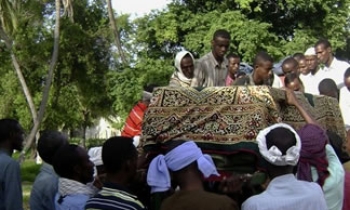The contempt of court proceedings against several Croatian journalists before the International Criminal Tribunal for the former Yugoslavia (ICTY) are a new development in the history of the international courts that were created in the early 1990s to try senior officials suspected of war crimes or crimes against humanity.

The tribunal Monday last indicted Croatian freelance journalist Domagoj Margetic for the second time for contempt of court, accusing him of publishing the names of witnesses whose identities judges had ordered withheld. Last month, the court had convicted another journalist, Josip Jovic, for contempt of court and fined him $25,400 for publishing the name and testimony of a protected witness.
A day after Jovic was fined by ICTY, Reporters sans Frontières (RSF) published a report about the often fraught relations between journalists and international courts, looking in particular at the precedents set by the disputes between journalists and the International Criminal Tribunal for Rwanda (ICTR).
RSF said, "The case of the Croatian journalists accused of contempt of court before the ICTY is different. The openly partisan and political nature of the publications involved is clear, as was their ill-will towards the tribunal. But the ICTY prosecutor's office decided to initiate proceedings at a fraught moment, which raises questions about its real motives. They were not initiated at the time of the first alleged violations of the court protection order but much later, at a particular moment in the Gotovina case. This did not escape the attention of one of the ICTY judges who, in a separate opinion issued on 20 June of this year, stressed that it 'could be important to explain during the trial why [Josip Jovic] was not charged until 2004 for an action dating back to 2000.'"
Margetic is accused of revealing the names of witnesses who testified under protective measures in the trial of the Bosnian Croat general Tihomir Blaskic. In 2000, Blaskic was sentenced to 45 years in prison for crimes committed by forces under his command in Bosnia in 1993. His sentence was dramatically cut to nine years on appeal, but prosecutors have since attempted to reopen the case in light of new witness testimony.
In a September 11 statement, the tribunal said, "He did so by publishing lists on his personal website between July 7 and August 2, despite receiving explicit advance warning that the material was confidential and subject to court orders which prohibited publication". It added that Margetic "undermines confidence in the tribunal's ability to grant effective protective measures" and that in committing these acts, he "interfered with witnesses who have given, or are about to give, evidence".

The list of some 120 witnesses, many of whose identities were supposed to be protected, was given to Margetic by tribunal prosecutors as part of a previous contempt case against him that was dropped earlier this year, prosecution office spokesman Anton Nikiforov said Tuesday. If convicted, Margetic faces a maximum punishment of seven years in prison and a fine of $127,000.
This is not the first time Margetic has appeared before the Tribunal. He was previously indicted for publishing Croatian president Stjepan Mesic's secret testimony in the Blaskic case in the Croatian weekly, Novo Hrvatsko Slovo, of which he was editor.
The tribunal last month fined the former editor Josip Jovic 20,000 euro for revealing Mesic's identity and publishing his testimony from the Blaskic trial. In a series of articles appearing in November and December 2000, Jovic published the sealed transcripts and part of a witness statement given to the office of the prosecutor by Mesic, who testified against a former Croatian army general, the court said.
The tribunal expressed particular concern over Jovic's decision to ignore a cease and desist order from the tribunal after the first four articles had appeared, noting he went on in subsequent editions to boast the transcripts he was publishing were "secret."

"His actions not only were contemptuous, but also stymied the tribunal's ability to safeguard the evidence of a protected witness and risked undermining confidence in the tribunal's ability to grant effective protective measures," said the court in its judgment summary. The defence had argued Jovic did not believe he was bound by the tribunal's orders and could not be held in contempt.
The RSF report said, "Journalists' organisations have for the most part said little about the proceedings against Croatian journalists. Aside from the nature of the alleged offences, the silence of these organisations has clearly been sustained by the poor reputation of the media and journalists involved, the nationalist politics that motivated them and their openly partisan character. All these factors have also encouraged human rights groups to steer clear of the case. But there is a danger that it will set a judicial precedent that will apply to all journalists covering the work of these courts."
In June, chief prosecutor Carla Del Ponte decided to withdraw indictments against three Croatian journalists charged with contempt. She said that "in the interest of justice and judicial economy" she chose not to proceed against Stjepan Seselj, Domagoj Margetic and Marijan Krizic, who had been all charged in connection with revealing the identity, statement and testimony of a protected prosecution witness in the case against Blaskic, who was sentenced to nine years in prison by the Hague court.
However, Jovic, the editor of Slobodna Dalmacija, faced the charges. He was alleged to have been the first of the four to have revealed Mesic's name, in his newspaper in 2000. The prosecution motion to withdraw three of the cases followed a decision by judges denying the prosecutor the right to present one unified case against all four journalists.

The judges had said that the allegations against the three occurred at a different time from that of Jovic – four years later – and at a different newspaper, and were not subject to the exactly the same court orders.
Del Ponte said that her office was "under increasing pressure" from judges to "limit the scope of its prosecutions" and to "exercise greater prosecutorial restraint." She admitted that the evidence for the three journalists is "to a large degree duplicative of the case against Jovic." And she argued that it would only be when presented as a joint trial "as a continuation of the criminal behaviour initiated by Jovic … [that] the acts ….of Seselj Krizic and Margetic …display their true colours and full criminality."









